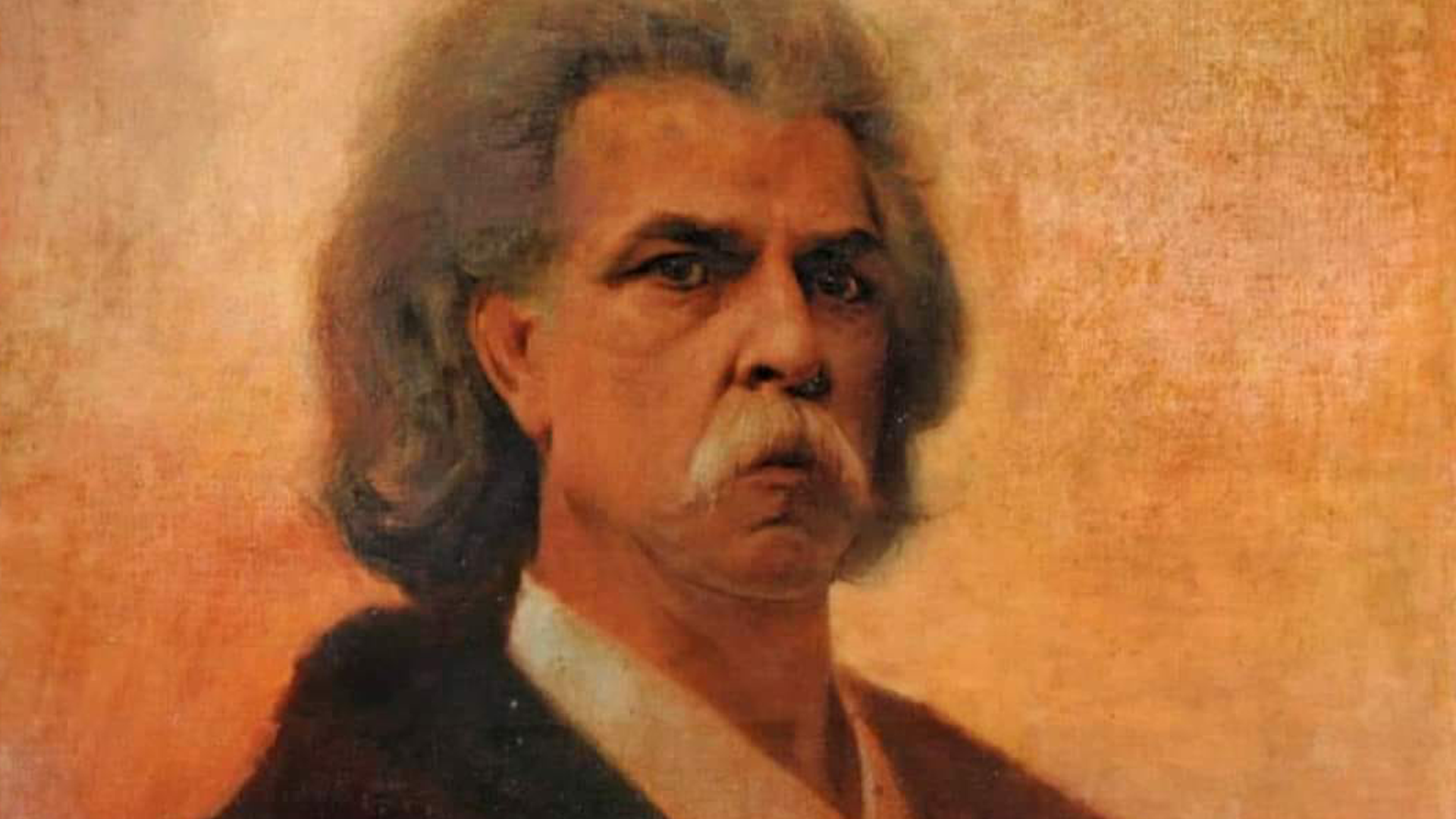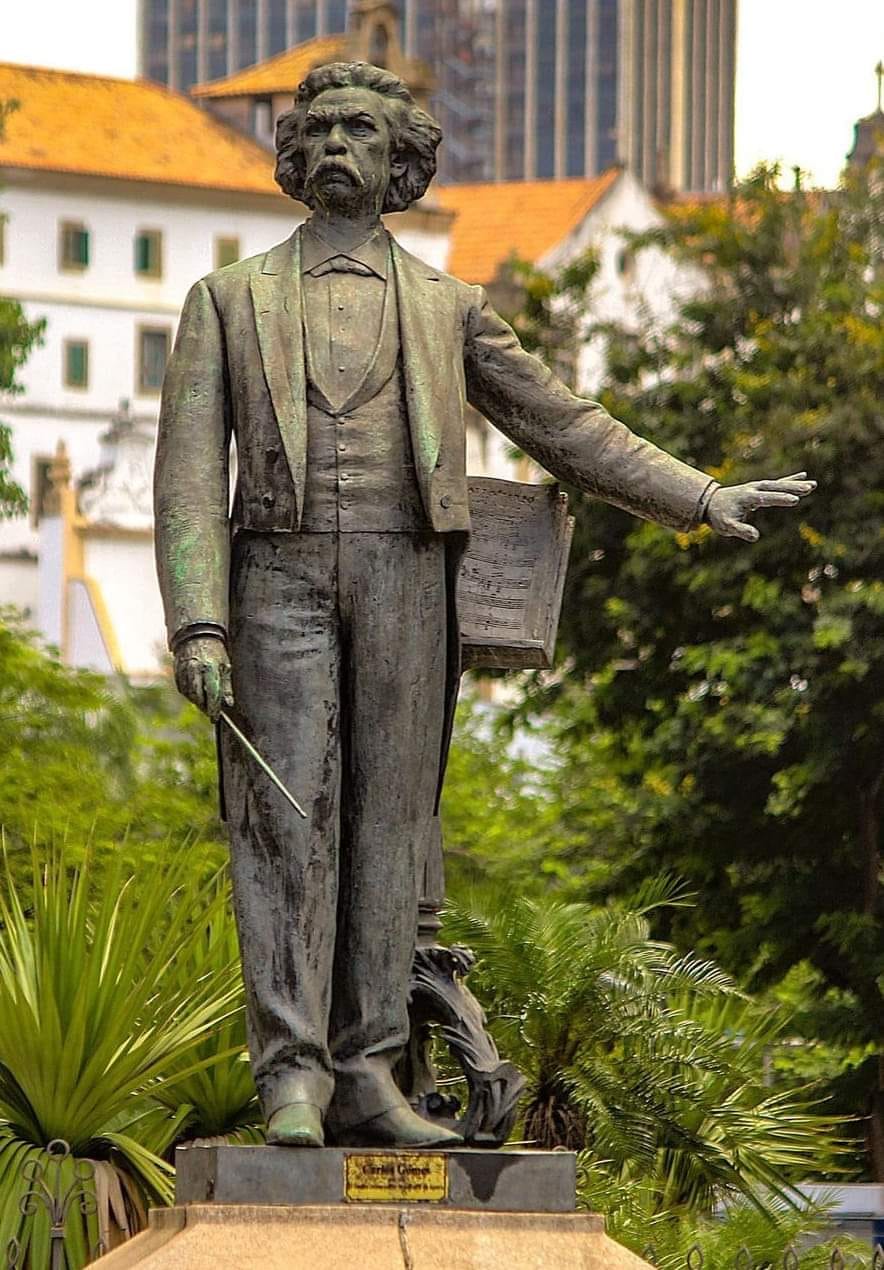The first Brazilian composer to achieve international renown, Antonio Carlos Gomes (1836-1896), was born in Campinas, São Paulo, on July 11, 1836. After graduating with distinction, Carlos produced his first opera, “A Noite do Castelo” (September 1861), which was a great success.

The pivotal moment in his career would be the opera “O Guarani,” with an Italian libretto based on the novel by José de Alencar. It premiered with great success at Teatro alla Scala in Milan in 1870 when the composer was 34 years old. It immediately made an impact throughout Europe, even earning him the title of Knight of the Crown of Italy, conferred by King Vittorio Emanuele.
In 1861, he obtained a pension from Emperor Dom Pedro II to study in Europe. Throughout his life, Carlos Gomes was torn between two homelands, two nationalities. By adopting Italy as his second nation, the composer faced harsh criticism from Brazilians who saw him as someone taking advantage of public funds, given that he had Emperor Dom Pedro II as his “patron.” On the other hand, Italians saw him as a mercenary, believing that he produced art for commercial purposes. In fact, “O Guarani” was even sold to a publisher.
Verdi said that his work was an expression of “true musical genius.” Liszt stated that it showcased a dense technical maturity, filled with harmonic and orchestral maturity. Carlos was the son of Maestro Manuel José Gomes and Fabiana Maria Jaguari Cardoso. Carlos Gomes’ musical inclinations in his childhood were quickly nurtured by his father and older brother, José Pedro de Sant’Ana Gomes, who was also a conductor.

Carlos Gomes married Adelina Peri, an Italian pianist whom he met while studying in Milan. He wrote the hymn “Il saluto del Brasile” for the centennial of American independence, which was performed in Philadelphia on July 19, 1876.
In 1883, the maestro traveled to Brazil, receiving tributes in all the cities he visited. Upon returning to Italy, he dedicated himself to composing an opera with an anti-slavery theme, inspired by the struggle for liberation of black slaves in Brazil, which was titled “Lo schiavo” (The Slave).
When the republic coup took place in 1889, Carlos Gomes, who was in Campinas at the time, embarked once again for Italy. Loyal to the Brazilian monarchy and Dom Pedro II, Gomes declined the opportunity given to him by President Deodoro da Fonseca to compose the new Brazilian National Anthem. In the following years, he composed the opera “Condor” and the cantata “Colombo” for the Columbus Festival (October 12, 1892), commemorating the 400th anniversary of the discovery of America.
Invited by the governor of the Brazilian province of Pará to lead the Music Conservatory, the maestro traveled to the capital city of Belém, ready to assume the position. However, shortly after arriving, Carlos Gomes, then elderly and in poor health, passed away on September 16, 1896. In addition to his eight operas, he composed songs in three books, choruses, and piano pieces.
Reference: Brazil Imperial – Artefatos e Imagens da História do Brasil no Período do Primeiro e do Segundo Reinado (1822-1889). O Mais Importante Compositor do Brasil Império. Brazil, July 19, 2022. Facebook: Brazil Imperial @BrazilImperiu. Available in: Brazil Imperial – O Mais Importante Compositor do Brasil Império… | Facebook. Accessed on: July 12, 2023.

Matheus Araújo
Matheus is an entrepreneur at Araujo Media, where he serves as CEO and Creative Director. He shares analyses on his personal blog "matheusaraujo.me" and is currently pursuing a degree in Advertising and Propaganda. Moreover, he has a passion for history, particularly that of Brazil, which led him to become the founder and editor of the Brazilian History portal.
